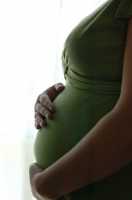
23 Oct Is Pregnancy a “Stress Test” for Future Dementia Risk?
MedicalResearch.com Interview with:
 Heather Boyd, Ph.D.
Heather Boyd, Ph.D.
Senior researcher
Department of Epidemiology Research
Copenhagen Denmark
MedicalResearch.com: What is the background for this study? What are the main findings?
Response: We have known for a while that women who have had preeclampsia report different types of cognitive impairment (difficulties with short-term memory, attention deficits) in the years and decades after their pregnancies, and there are a few imaging studies suggesting that these women may have more white matter lesions in the brain and more signs of brain atrophy than women with uncomplicated pregnancies. We also know that women who have had preeclampsia are at increased risk of cardiovascular disease in the years and decades after delivery. Taken together, it was not a great leap to hypothesize that women with a history of preeclampsia might also be at increased risk of dementia later in life. However, the existing epidemiological data were unconvincing, possibly because it takes a great deal of power (a very large study population) to study links between two conditions that often occur decades apart.
MedicalResearch.com: What is the background for this study? What are the main findings?
Response: Our study’s main finding was that women who had had preeclampsia had more than three times the risk of vascular dementia later in life, compared with women who had had uncomplicated pregnancies. Interestingly, this association appeared to be stronger for late-onset vascular dementia (vascular dementia with onset ≥65 years) than for early-onset disease (onset <65 years). In contrast, preeclampsia was only modestly associated with the risk of Alzheimer’s disease.
Adjustment for cardiovascular disease, hypertension, diabetes, stroke, and kidney disease attenuated our results only moderately, suggesting that the association cannot entirely be explained by other co-morbidities. Furthermore, additional analyses suggested that confounding by obesity was unlikely to explain the association with vascular dementia but could account for much of the association with Alzheimer’s disease.
MedicalResearch.com: What should readers take away from your report?
Response: The idea of pregnancy as a sort of “stress test” for future cardiovascular and vascular morbidity is gaining traction in both the research community and the clinical community.
Our findings suggest that asking about a history of preeclampsia might help physicians to identify a group of women who might benefit from early attention to modifiable vascular risk factors for dementia (and cardiovascular disease), such as concerted efforts to reduce blood pressure and cholesterol levels, prevent the development of type II diabetes, and get weight down to healthy levels. Of course, we don’t yet know that targeting modifiable risk factors can actually reduce the risk of dementia associated with a history of preeclampsia, but it can’t hurt!
MedicalResearch.com: What recommendations do you have for future research as a result of this work?
Response: Our findings support a common underlying mechanism linking preeclampsia and vascular dementia, suggesting an avenue for future studies of candidate biological pathways, as well as potential targets for intervention.
Thank you for the opportunity to discuss our research in this forum. I have no disclosures to report.
Citation:
Pre-eclampsia and risk of dementia later in life: nationwide cohort study
BMJ 2018; 363 doi: https://doi.org/10.1136/bmj.k4109 (Published 17 October 2018)Cite this as: BMJ 2018;363:k4109
[wysija_form id=”3″]
[last-modified]
The information on MedicalResearch.com is provided for educational purposes only, and is in no way intended to diagnose, cure, or treat any medical or other condition. Always seek the advice of your physician or other qualified health and ask your doctor any questions you may have regarding a medical condition. In addition to all other limitations and disclaimers in this agreement, service provider and its third party providers disclaim any liability or loss in connection with the content provided on this website.
Last Updated on October 23, 2018 by Marie Benz MD FAAD
